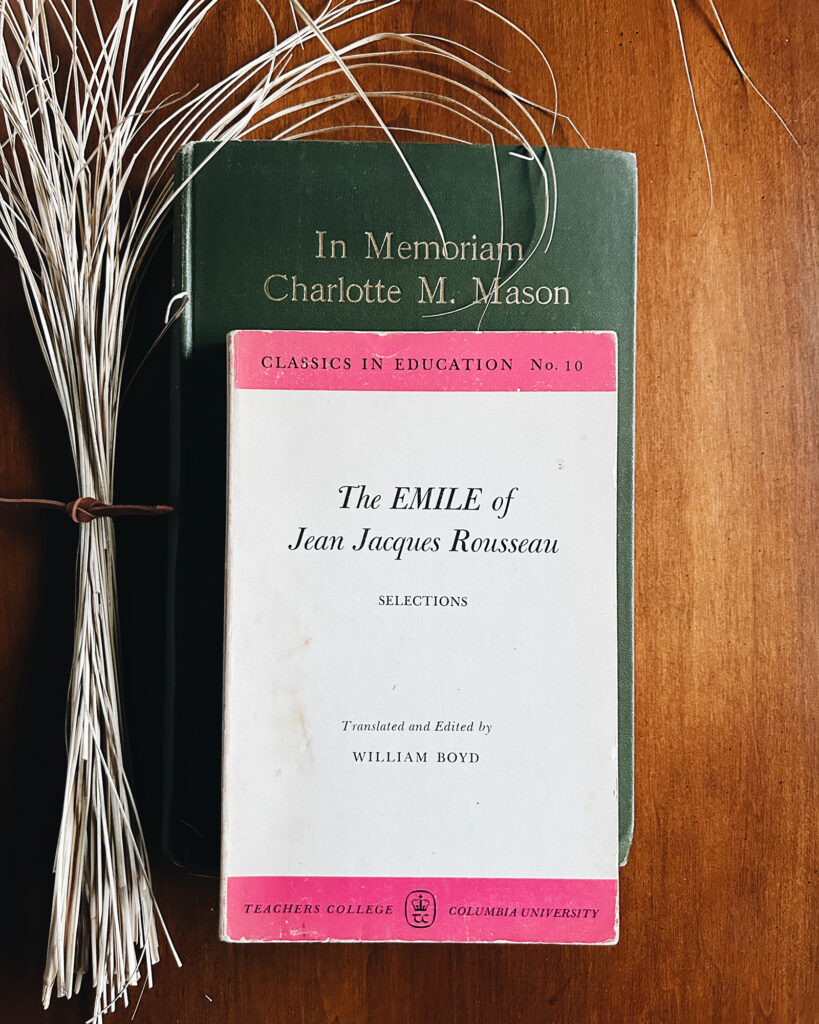CMP Review 2024-12-19
December 19, 2024

“Her ideas about children are, you want to say, from Émile by Rousseau, but she probably never read it,” mused Martin Cothran about Charlotte Mason on the December 4 episode of the Classical Et Cetera podcast by Memoria Press.
Well of course Miss Mason read Émile; in fact she quoted it extensively, and often favorably. An often-overlooked article by Mason is “Two Educational Ideals,” originally intended to be part of her final book. In the paper she painstakingly evaluates one idea after another from Émile, because “as long as education remains the concern of most men and women,” she writes, “we shall continue to follow [Rousseau’s] lead; but because there is much dross with the gold, we must discriminate and eliminate.”
Cothran also observed an affinity between Mason and the “Romanticists.” But this too is no revelation. It was recognized as early as 1923, the year of Mason’s death, when M. E. Sadler wrote, “Through Ruskin and Thomas Arnold of Rugby, [Mason] was in direct succession from Wordsworth” (In Memoriam, p. 19). In fact, Mason quoted Wordsworth, the inaugurator of Romanticism, more often than any other writer.
I listened to both episodes of “Charlotte Mason Explained: A Classical Education Perspective” and I enjoyed them. Admittedly, I didn’t learn anything new about Charlotte Mason. But I was happy to see that even a cursory glance at the Twenty Principles by Classical Educational theorists reveals many of the foundational differences that separate Mason from the classical tradition. Bravo to Classical Et Cetera for its bold conclusion. Quod erat demonstrandum.
@artmiddlekauff